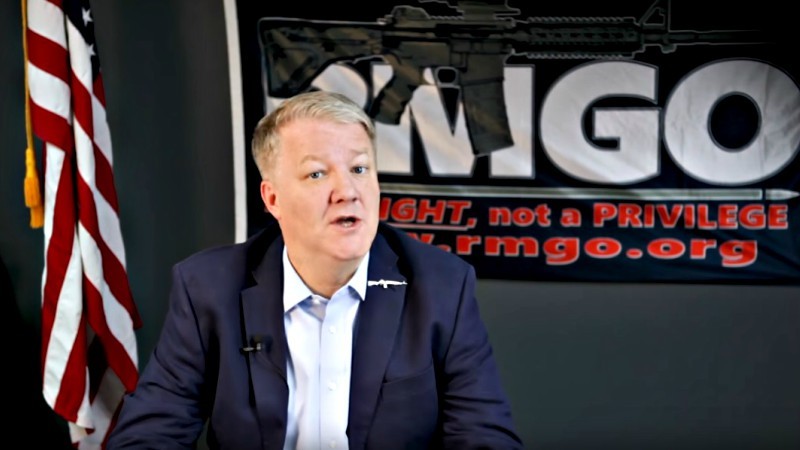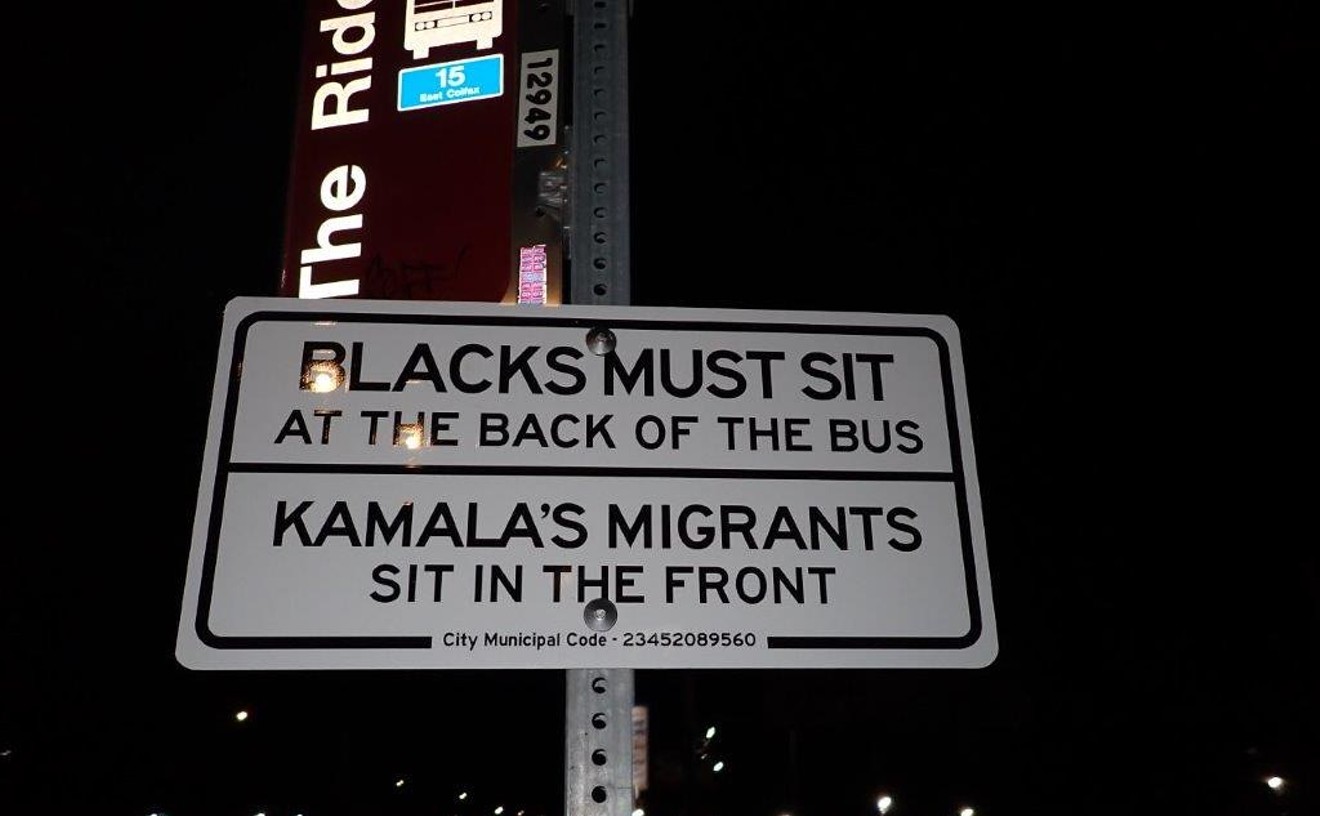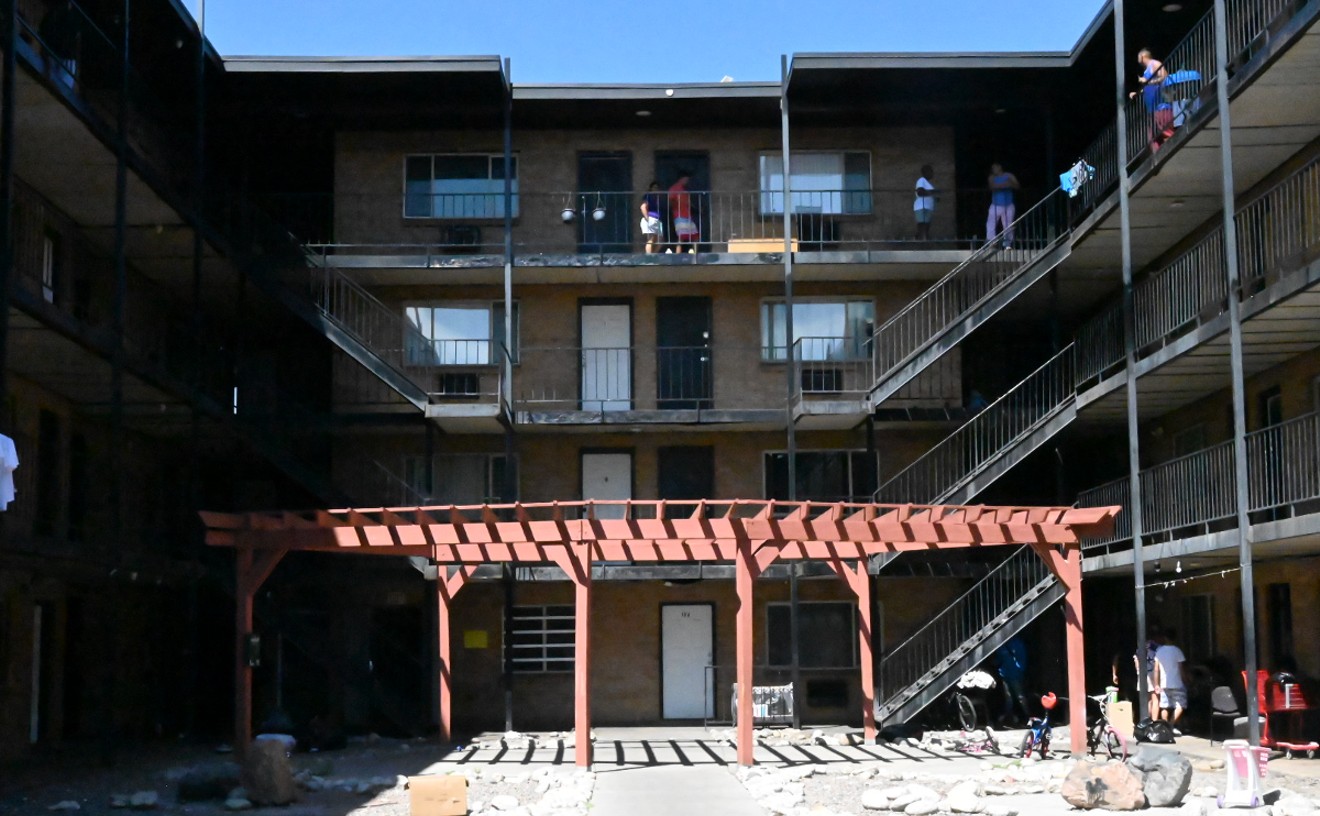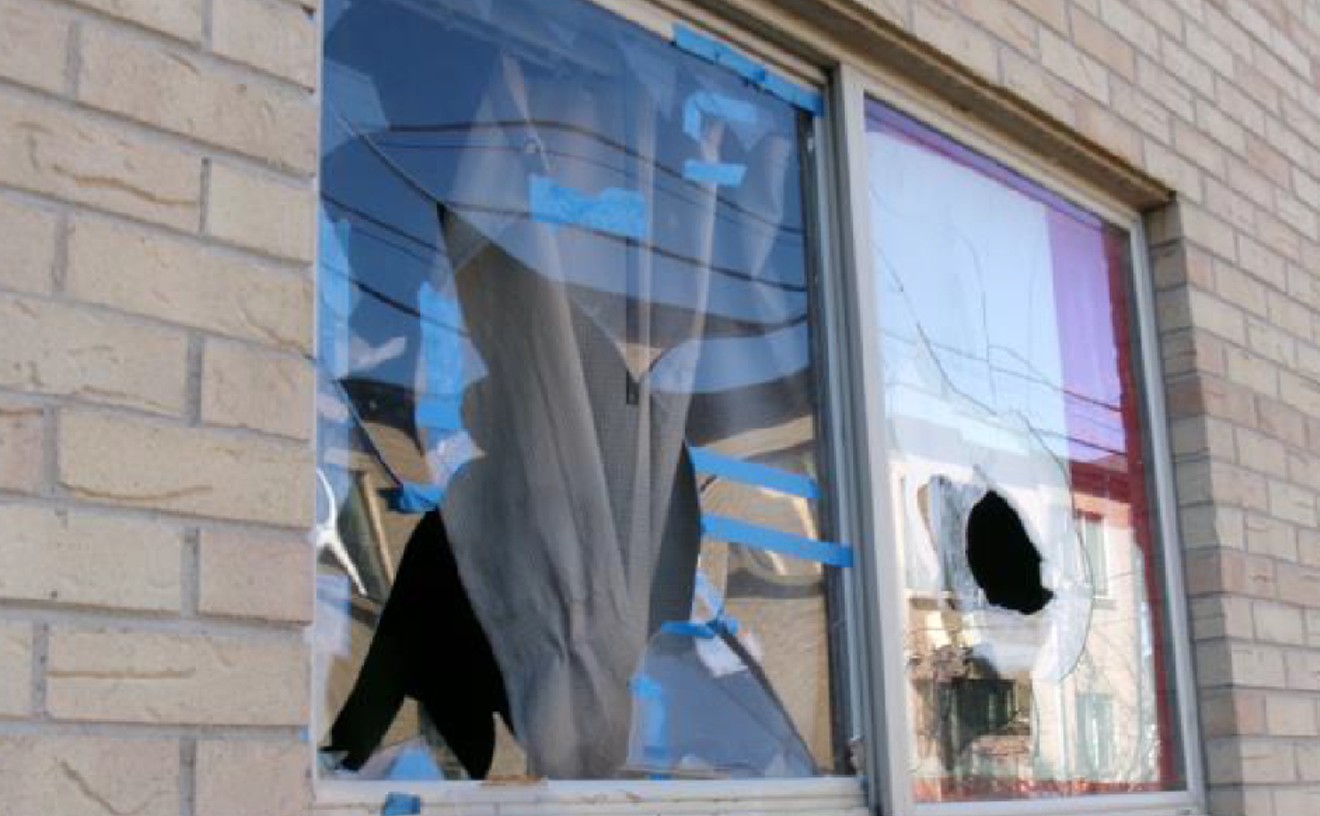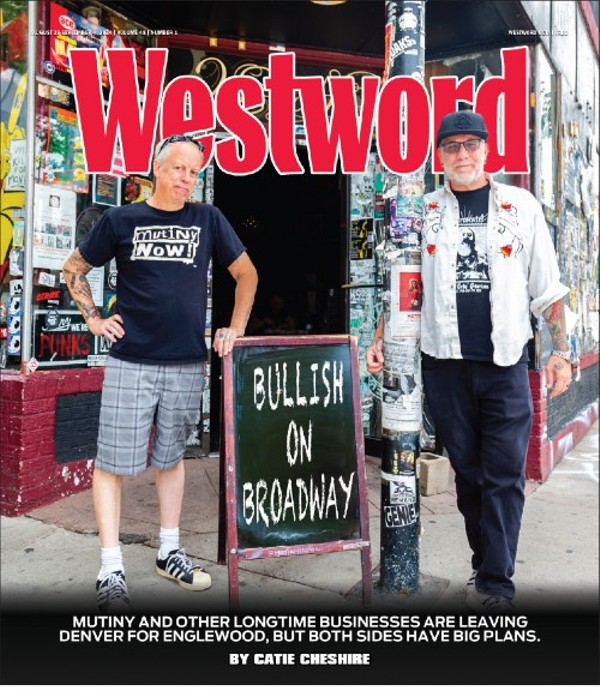The Colorado legislature is once again considering a red flag gun bill that would allow family members and law enforcement to request court orders to confiscate firearms from people who are deemed a significant risk to themselves or others. The seizures could last a maximum of 364 days.
The proposed legislation passed the House on Monday, March 4, and is scheduled for its next hearing in the Senate on Friday, March 15.
Unlike last year, when Republicans controlled the Senate, the bill seems likely to become law given that Democrats now control the Statehouse. Still, opponents are firing back…and with specific targets in mind.
Echoing the recall efforts in 2013 that resulted in the ousters of two prominent Democrats — Senate President John Morse and Senator Angela Giron — a website called Recall Colorado surfaced last week that puts at least two lawmakers on notice. Funded by Values First Colorado, a political organization registered under Joe Neville (brother of Republican Minority Leader of the House Patrick Neville), the site not only lists the red flag bill as an example of “overreaching legislation” this session — it labels Democratic lawmakers Jeff Bridges and Meg Froelich, both of Arapahoe County, as “bad actors” for their votes or support of such legislation as the sex education bill, national popular vote bill, oil and gas regulations and so-called sanctuary laws.
For even the most casual Colorado political observer, there’s also a familiar name that's closely involved with any potential recall effort: Dudley Brown.
The outspoken head of the Colorado-based gun-rights organizations Rocky Mountain Gun Owners and the National Association for Gun Rights played a key role in the 2013 recall effort, sending out small armies of volunteers to gather signatures and raising gobs of cash to ensure Morse and Giron’s ousting after both lawmakers voted to pass universal background checks and limits on magazines to fifteen rounds of ammunition.
We sat down with Brown to learn more about his efforts to counter this year’s red flag bill — including another potential round of recall petitions — as well as NAGR’s efforts at the federal level.
Westword: To start off, why are red flag bills such a concern for you — whether at the national level or here in Colorado?
Dudley Brown: The entire premise of a red flag bill is to circumvent your due-process rights. In fact, even the ACLU opposed a red flag bill in Rhode Island. Now, they hid that here in Colorado — probably a political decision. I call that cowardice.
In any case, it's wrong. It's wrong to violate due-process rights. Would you like it if a court was holding a hearing about you and you didn’t know about it? Hell, no!
You know, there was a move in Colorado three days before it went to the House floor; [Douglas County Sheriff] Tony Spurlock was trying to cut a deal, because he realizes his teet is in a wringer [for supporting this] — and he may get recalled. But he was trying to save his bacon by cutting a deal on mental health, by expanding services.
But from our perspective, a red flag bill is only about guns...someone is a danger to society and then you take all their guns. Really? That sounds like you've made them really mad. And they can still go after society with cars and chainsaws and be free to do whatever they want. So it really isn't solving the mental health problem.
There's a new political reality in Colorado since the midterm elections, with every statewide elected office held by Democrats and a Democratic majority in both chambers of the Statehouse. How does that change your efforts around legislation like the red flag bill?
It doesn't. We're in the same boat. Just because a Republican holds a seat doesn't mean they're allied with our organization. If you've been around for any period of time, you'll know that we have a long and sordid history of tangling with Republicans. I think if you were to have a popular vote, absent the solid conservatives that we play a role in electing to the legislature, I'm pretty sure there's a bigger percentage of Republicans who hate me than Democrats.
But mostly Republicans don't dare vote against us. There are very few who will. They're a dying and going-extinct breed, and it's because we've hunted them. Let's call them “black rhinos.” We hunt them, and there's no bag limit, and you don't have to have a plug in your gun, and you don't even have to have a tag for them. And I don't even clean ’em — I just leave them lying in the field. For the humor impaired, we're talking politically here.
This renewed attention on recalls has echoes of 2013. In what ways do you see this latest effort as being similar or different to 2013?
[That year] was all about guns. Period. End of sentence. There weren't other issues involved. And while some may say that the intensity with gun owners may not be as heavy this year as it was six years ago, I think you've added in a whole spectrum of people who are motivated for different issues. And frankly, what it comes down to is that they're motivated on the issues they care about, and one usually gets them going. And that's what makes them say, “Screw it. I'm going to charge the hill.” And that's fine with us. The more the merrier.
As for the makeup [of the legislature]? That doesn't really change much of our plan. Politicians have to be worried that if they vote against a constitutional right, someone's going to hold them accountable. Anyone's fair game. It's Republicans and Dems who need to be concerned about recalls and putting political targets on their chests in the next election. Because I'm not owned by the Republican Party, and if Republicans jump ship, then we'll go after them. That's what we do. We're an equal-opportunity offender.
What is that plan more specifically? How do you carry out a successful recall effort, or at least place enough pressure to sway votes the way that you want?
Well, the first rule of business is to prove to them that you can actually conduct a recall, and we've proven that. You need to prove to them that it might be a career decision, if they're in a marginal district, to vote for a gun confiscation plan. And then, of course, you can't rest on your laurels — because six years ago is ancient history for some folks. So you have to prove it over and over again.
Right now, we're looking at what districts we'll want to launch recalls in. Some of them are already happening — we're talking with some folks.
Yes, I saw on the recently launched Recall Colorado that Democratic Senator Jeff Bridges and Democratic Representative Meg Froelich are listed as "bad actors." How were they identified, specifically? Is it just because they're in close districts?
Most of the time you'll have some activist that just says, "I can't take this anymore." In this case, it was an activist who saw their votes on the national popular vote and saw how they were changing presidential elections.
I get that. I don't want California or New York or, heck, even Florida, deciding who my president is. That's the genius behind the electoral college. You know, our founding fathers actually did get math; they figured it out. And you're talking to someone who didn't even vote for Donald Trump.
Who did you vote for?
I threw my vote away, even though I was a national delegate.
Interesting. This is jumping between Colorado and national politics, but while we're on the subject of Donald Trump, what are your views of his politics around guns, and how has NAGR attuned its efforts to his presidency?
Here’s a short story: I got an invite to the White House Christmas party this last December, and I thought, “This has got to be a mistake.” But I went anyway, because I wanted to see the White House, and so my wife and I went, and it was nice.
I hope they had more than Big Macs....
[Laughs.] I will say the food was outrageously good; the spread was incredible.
And the reason my invite was somewhat humorous is that our national group has been on the forefront about blowing the trumpet on Donald Trump. He's literally passed more gun controls during his two years as president than Barack Obama did in eight years.
The bump stock ban was one. And remember, Barack Hussein Obama's ATF refused to regulate bump stocks. So in other words, the NRA and Donald Trump were to the left of the ATF and Obama on the bump stock issue. So to everyone who says that dynamics and party politics are weird: Yes, of course they're weird! And Donald Trump makes it even weirder. He's just not the norm.
Well, now the White House is coming out with a school safety and violence commission that has a slew of solutions, and one of them is the passage of red flag laws. In fact, [on Thursday, March 7], Lindsey Graham announced that the Senate is holding hearings.
And that's one of the reasons I go to D.C. a lot: to talk to senators to figure out who has the cojones to object to unanimous consent on something like that.
So, it sounds like the White House invite was a bit of a surprise given your continued opposition to national gun-control bills Trump has been signing into law. I know that another ongoing concern you have at the national level is universal gun registration. Can you explain why that's an issue?
The goal of some activists in the gun-control movement is to make sure only police officers have any firearms to speak of. But how do you do that?
Well, if you want to ban assault rifles in America like we did with the Feinstein ban for ten years, at that time [in 1994], there were two million or maybe two and a half million AR-15s in America. And now we think there are 35 to 50 million. How do you put that genie back in the bottle? There's only one way: door to door. And good luck with that.
So are you saying that universal gun registration would create a national inventory so that if you wanted to confiscate a class of firearms — say, assault rifles — you'd know exactly where to find them and who owns them?
The joke within the firearms community right now is that, if they think an assault-weapons ban is coming, they'll say, “Oh, yeah, I lost that [gun] in a boating accident," or "I sold that [gun] to a friend.”
But a universal gun registration would mean no more private sales of firearms.
How big is your staff at NAGR? It must take a lot of manpower to keep track of issues not only at the federal level, but in all fifty states, including Colorado.
Well some states, like New Jersey, are ones we don't really operate in. Imagine that! NAGR has 55 staff members. And RMGO has two full-time staff members. But they're interchangeable in a lot of ways, even though some people have said we should be considering moving our national headquarters.
Like to Washington, D.C.?
No, my guns are illegal in D.C. I own a lot of machine guns.
But we've never been a D.C. group, and I've always resisted moving to D.C. It's funny, because a lot of people don't know the connection [that NAGR is based in Colorado]. Some people in D.C. used to say, "Oh, Dudley is one guy in his basement." But we have 4.5 million Facebook followers between statewide groups across the country now. And in some years, like in 2013, we spent more money lobbying Congress than the NRA.
What is your current relationship with the NRA? Are you working with the NRA at all here in Colorado?
No. The NRA is persona non grata in Colorado.
Why is that?
We ran them out. We were tired of them cutting deals with our enemies, like [former] Republican Representative Cole Wist. He was supposed to be a conservative Republican. And a little birdie told me he was caving on the red flag bill last year. I called him up, and he said "No, no, I'd never do that."
And then a week later we filed an open-records act request, and here's Cole Wist talking with [other elected officials] about passing the red flag bill. And so we opposed him in the [midterm] election and he lost.
Who are your current allies in Colorado? The Nevilles? Who else?
You mean Joe [Neville], who I was just sitting here with [before you arrived]? Yeah, of course. The most solid pro-gun conservatives in the Capitol are our allies, and we generally play a role in getting them into office and helping them with their races, as we should.
How are you feeling about your chances of preventing the red flag bill from passing in the Senate? It's already passed in the House, and you've got to assume Governor Polis isn't going to veto this. So in that sense, this bill is two-thirds of the way to the finish line…
It's an uphill battle, no question. I'm not much a betting man...and I wouldn't put much money on it [being defeated in the Senate].
So are there contingencies you have in mind if this does pass, like challenging it in the courts?
Of course. But that's another big bite. My side tends to want to charge the hill, and only then they figure out, "Oh, yeah, there's three machine guns in that nest on top of the hill."
It's not quite as easy as you think, so we always look very carefully at what we can do. People can be critical. But in 2013, I didn't think the recalls would work initially, because they'd never been done. But the second that people took petitions out, we jumped on board and sent volunteers and spent more money than anybody else.
Are there other gun-related fights coming up in this state that are on your radar?
I think we could face an assault-weapons ban.
I always tell our activists, "Don’t threaten to move. They want you to move." Colorado is unique and has more types of independent people than many states. But we have people moving in from all around the country who want to change it to be like their old state, like California. And we say, "You know what? We'd like to leave it like Colorado." To me, we're losing our culture, even though firearms are deeply rooted in Colorado.
But the thing is, I now run into so many people that I didn't run into ten years ago, when it was the potbellied middle-aged white guy who was the gun guy. Now I'm running into all these millennials, girls, gays, people in Five Points, who are saying, "I'm not going to be defenseless in my own house."
After Matthew Shepard, we had a slew of people come to us saying they didn't want to be the product of a gay-bashing. So we're not the monolithic group that we used to be.
You mentioned you’re about to head to a meeting at the Centennial Gun Club after our interview. What can you tell me about that meeting?
It's to brief our members on what's happening at the Capitol. It's for the members on our lists. But we're only having one legislator there; that way we can kick out anybody we want because we don't run into Sunshine Laws. Like if one of Colorado Pol's trackers is there, we'll kick them out.
Will you be discussing potential recalls?
Sure. Look, last year there were two Republicans who voted for red flag: Cole Wist and Dan Thurlow. And what do they call those people now? What are their titles? "Former" representative. We're pretty good at making people "former," and that's what we're going to do.

Audio By Carbonatix
[
{
"name": "Air - MediumRectangle - Inline Content - Mobile Display Size",
"component": "12017618",
"insertPoint": "2",
"requiredCountToDisplay": "2",
"watchElement": ".fdn-content-body",
"astAdList": [
{
"adType": "rectangle",
"displayTargets": "mobile"
}
]
},{
"name": "Editor Picks",
"component": "17242653",
"insertPoint": "4",
"requiredCountToDisplay": "1",
"watchElement": ".fdn-content-body",
"astAdList": [
{
"adType": "rectangle",
"displayTargets": "desktop|tablet"
},{
"adType": "rectangle",
"displayTargets": "desktop|tablet|mobile"
}
]
},{
"name": "Inline Links",
"component": "18838239",
"insertPoint": "8th",
"startingPoint": 8,
"requiredCountToDisplay": "7",
"maxInsertions": 25
},{
"name": "Air - MediumRectangle - Combo - Inline Content",
"component": "17261320",
"insertPoint": "8th",
"startingPoint": 8,
"requiredCountToDisplay": "7",
"maxInsertions": 25,
"watchElement": ".fdn-content-body",
"astAdList": [
{
"adType": "rectangle",
"displayTargets": "desktop|tablet"
},{
"adType": "rectangle",
"displayTargets": "desktop|tablet|mobile"
}
]
},{
"name": "Inline Links",
"component": "18838239",
"insertPoint": "8th",
"startingPoint": 12,
"requiredCountToDisplay": "11",
"maxInsertions": 25
},{
"name": "Air - Leaderboard Tower - Combo - Inline Content",
"component": "17261321",
"insertPoint": "8th",
"startingPoint": 12,
"requiredCountToDisplay": "11",
"maxInsertions": 25,
"watchElement": ".fdn-content-body",
"astAdList": [
{
"adType": "leaderboardInlineContent",
"displayTargets": "desktop|tablet"
},{
"adType": "tower",
"displayTargets": "mobile"
}
]
}
]

